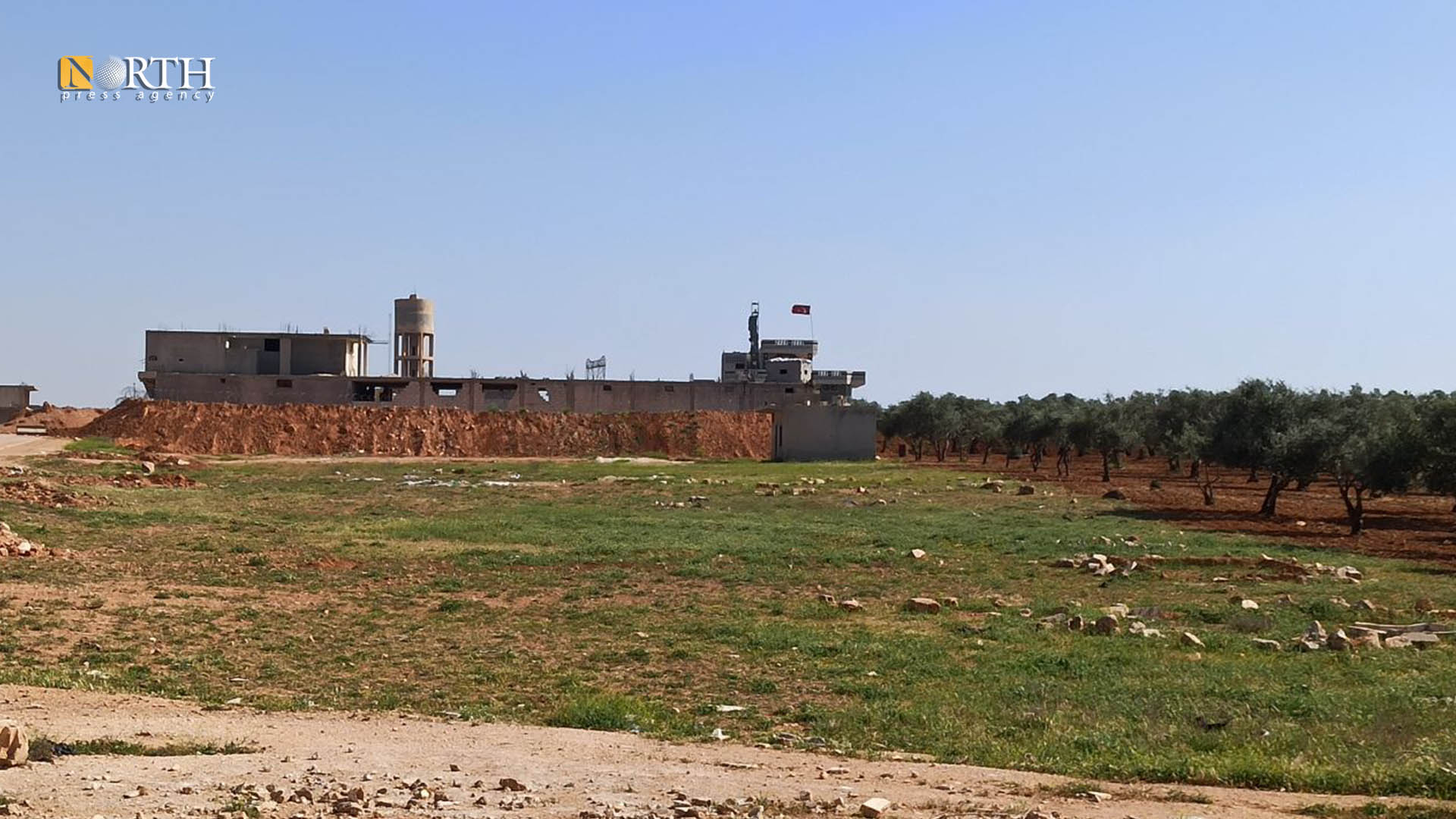IDLIB, Syria (North Press) – After being displaced from Ma’arat al-Numan early last year and becoming an IDP in Atmeh Camp, northwest Syria, and in light of lack of job opportunities, 32-year-old Naji Assaf became involved in armed action within the Turkish-backed Idlib Free Army.
In need of money, he was forced to fight on the frontlines against Syrian government forces in Zawiya Mountain, south Idlib, for a salary of 400 Turkish lira per month.
Amid accusations directed at groups’ leaders of corruption and stealing parts of the salaries, Turkish-backed armed groups’ militants operating in this area make about 300 Turkish lira, which fails to meet their families’ needs for even a week.
Under the pretext of the limited support, Idlib Free Army decreased the salary to about 150 Turkish lira, Assaf said in an interview with North Press.
However, Assaf and other militants was not convinced with this pretext, since most militants of groups affiliated with National Front for Liberation make the same salary, which does not differ from one group to another.
“I had no choice but to give up, as we did not have evidence condemning the leaders, and following up on the issue would have caused us problems,” he added.
The groups’ militants make between 300 and 500 Turkish lira in accordance with their tasks, according to Assaf.
As a result of low incomes, dozens of militants are forced to work for daily wages in order to secure their families’ needs.
Others were forced to head to Turkey illegally, as Assaf did in January, leaving his family of seven and his ill mother in Atmeh Camp for the sake of work.
Resorting to Hayat Tahrir al-Sham
Some other militants considered switching groups to be a better choice, most prominent among these groups Hayat Tahrir al-Sham (HTS, formerly al-Nusra Front).
Some HTS militants make more than $250 US dollars per month, in addition to the various privileges they obtain in light of the groups’ growing control, militants told North Press.
HTS militant Ibrahim al-Halabi (a pseudonym), an IDP from the northern countryside of Hama, said that low and late salaries urged him to leave armed groups affiliated with the Sham Legion, guarding Turkish posts in Idlib countryside.
Later, al-Halabi joined HTS for $100 USD per month, which he considered excellent in contrast with Sham Legion’s salary of about 300 Turkish lira (about $30).
The decision to join HTS was the only choice in light of the deteriorating living and economic conditions, according to the young man, who supports his sick father and younger siblings.
Militants in the Turkish-backed Syrian National Army (SNA) rely on monthly financial allocations which Ankara send to the three legions operating in areas of Euphrates Shield (al-Bab and Jarabulus), Olive Branch (Afrin), and Peace Spring (Tel Abyad and Sere Kaniye) operations, in addition to National Front for Liberation operating in Idlib.
What about Turks’ salaries?
The big difference between salaries of the armed groups and those of Turkish soldiers raised anger among the militants, Muhammad al-Najem, a militant of Sham Legion, said.
Each Turkish soldier makes about $1,500 in the same amount of time each militant of the National Army makes less than 300 Turkish lira, according to al-Najem.
On April 5, militants of the National Army conducted a protest in the city of Marea to demand a solution to the interruption of their financial allocations and the delay, which was only limited to the military groups.
The Syrian National Army, also described as the Turkish-backed Free Syrian Army, is a coalition of armed Syrian opposition groups that are operating in north Aleppo, north Hasakah, and Raqqa, formed by the Syrian Interim Government with Turkey’s direct support on May 30, 2017.
Meanwhile, HTS-held areas witness weak presence of militants of the SNA, which includes about 80,000 militants, according to the Syrian National Coalition (a Turkish-backed Syrian opposition coalition affiliated with the SNA).

